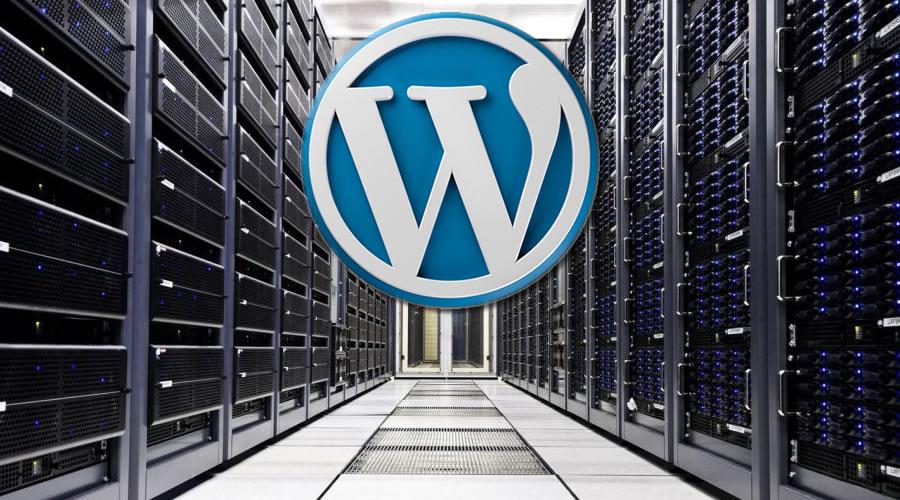What is WordPress Hosting and why it matters
If you're new to wordpress hosting sites, you may be wondering what WordPress hosting is and why it matters. Simply put, WordPress hosting is a type of web hosting that is specifically optimized to run WordPress websites. It comes with a number of features and benefits that are tailored to the unique needs of WordPress users.
The first thing to understand is that WordPress is a content management system (CMS) that allows you to create and manage a website. However, in order for your website to be accessible to the public, it needs to be hosted on a server. This is where WordPress hosting comes in.
Choosing the right WordPress hosting provider is crucial for the success of your website. The right hosting provider will ensure that your website is fast, secure, and always available to your visitors. It will also provide you with the tools and support you need to manage your website effectively.
One of the key benefits of WordPress hosting is that it is optimized for WordPress. This means that the hosting provider has configured their servers to work specifically with WordPress, ensuring that your website runs smoothly and efficiently. Additionally, WordPress hosting providers often offer features like automatic updates, backups, and security measures that are designed to keep your website safe and secure.
In short, WordPress hosting is an essential part of running a WordPress website. Choosing the right hosting provider will ensure that your website is fast, secure, and always available to your visitors, while also providing you with the tools and support you need to manage your website effectively.
The different types of WordPress Hosting
When it comes to cheap wordpress hosting, there are three main types to consider: shared hosting, VPS hosting, and managed hosting. Each type has its own pros and cons, and it's important to understand them before making a decision.
Shared hosting is the most common and affordable option, as it involves sharing server resources with other websites. While this may be a budget-friendly option, it can lead to slower site speed and less control over server settings.
VPS hosting, on the other hand, offers more control and flexibility by allowing you to have your own virtual server. This means you can customize your settings and have faster load times, but it also comes at a higher cost.
Managed hosting is a premium option where the hosting provider takes care of all technical aspects of your site, including security, backups, and updates. This allows you to focus on creating content and growing your business, but it comes with a higher price tag.
When choosing the best WordPress hosting for your website, consider the size of your site, your budget, and your technical expertise. It's important to weigh the pros and cons of each type of hosting before making a decision.
The importance of site speed and uptime
When it comes to choosing the best WordPress hosting, site speed and uptime are two of the most critical features to consider. Site speed refers to the speed at which your website loads, while uptime refers to the amount of time your site is up and running.
Both of these factors play a significant role in the success of your website. If your website takes forever to load, visitors will quickly become frustrated and move on to another site. Additionally, if your site experiences frequent downtime, it can negatively impact your search engine rankings and lead to a loss of revenue.
When choosing a fastest wordpress hosting provider, look for one that offers fast loading times and a high uptime guarantee. Many reputable providers offer an uptime guarantee of 99.9% or higher, which means your site will be up and running almost all the time.
In addition to uptime and site speed, it's also important to consider the provider's server location, as this can impact your website's loading times in different geographic regions. By carefully considering these factors, you can choose a WordPress hosting provider that provides reliable, fast, and consistent performance for your website.
Security features to look for in a WordPress Hosting provider
Security is one of the most critical aspects of hosting your WordPress website. With the rise of cyber threats and hacking attempts, it's essential to choose a hosting provider that offers robust security features to keep your website safe and secure.
One of the most important security features to look for is SSL certification. An SSL certificate ensures that all communication between the website and the user is encrypted and secure. It also helps to build trust with your website visitors and can improve your website's search engine rankings.
Another crucial security feature to consider is the use of a web application firewall (WAF). A WAF can detect and block malicious traffic before it reaches your website, preventing attacks such as DDoS attacks and brute force attacks.
It's also important to choose a WordPress hosting provider that offers regular backups and easy restoration options. In case of a security breach or data loss, having a recent backup can save you from losing valuable content and data.
Lastly, check if the hosting provider offers proactive monitoring and security patches. Keeping your WordPress website updated with the latest security patches is crucial to prevent vulnerabilities from being exploited. A reputable hosting provider should take care of this for you to ensure the security and uptime of your website.
The importance of scalability
Scalability is a crucial factor to consider when choosing the best WordPress hosting for your website. Your website's growth potential should always be at the forefront of your mind. As your website traffic grows, you'll need to ensure that your hosting provider can handle the increased traffic without causing any lag in website speed or performance.
A hosting provider that offers scalability ensures that your website can handle spikes in traffic during peak seasons or when you launch a new product or service. This means that your website can comfortably accommodate an increase in traffic without affecting its speed or performance. You don't want your website to crash or become slow during a high-traffic period, as this can lead to a loss of revenue and a negative user experience for your customers.
Scalability can come in different forms, including the ability to easily upgrade to a higher hosting plan, the provision of CDN (Content Delivery Network) services to ensure faster website loading times, and the ability to add more resources to your account whenever you need them. Make sure to check if your hosting provider offers scalability options before signing up for their services.





